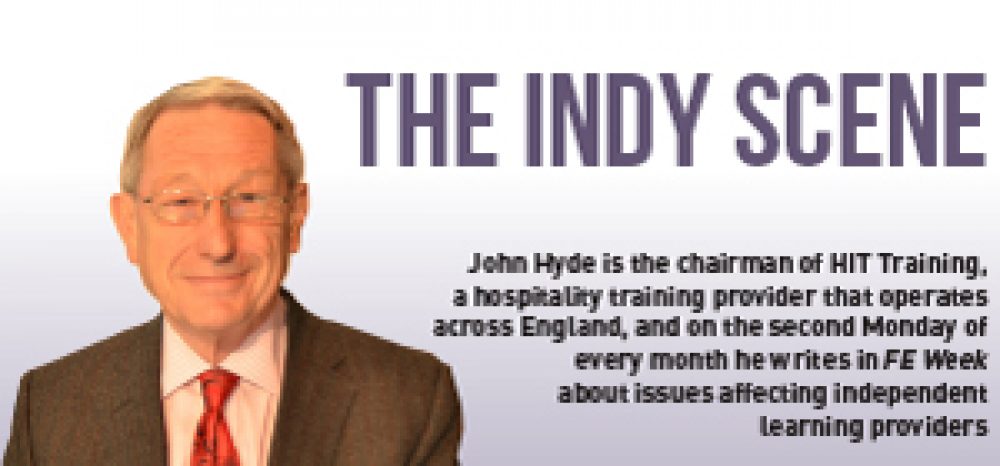When high street jeweller Gerald Ratner famously rubbished one of his products a few years ago, his ill-judged comments resulted in Britain’s biggest jewellery group plunging £122.3m into the red with 330 shops in Britain and the United States closing.
I’m sure Ofsted chief inspector Sir Michael Wilshaw, when rubbishing ‘cleaning’ and ‘coffee-making’ apprenticeships, did not intend the apprenticeship brand to suffer a similar fate.
A glance at the cleaning standards would have shown the complexity of 21st Century cleaning.
Too often a junior minister uses their newly-acquired powers to make changes solely to promote their own ambitions with no regard to the consequences
Cleaning the windows of The Shard or a hospital operating theatre demonstrates the skills modern cleaners require.
Again, it is us, the provider who has to clear up the mess after Ofsted’s five minutes of PR fame.
Learners, parents and employers have to be reassured of the value of the apprenticeship they are undertaking.
While cleaning apprentices may not have the academic abilities needed to become an engineering technician, it is arrogance to suggest their skills are not as important to society as a whole today, especially in respect of public health, safety and hygiene.
There should be parity of esteem across all apprenticeship programmes, regardless of technical complexity and academic requirements. Where would we be without sanitized and clean hospitals, care homes, toilets and public buildings?
Before disparaging ‘coffee-making’ apprenticeships, if the chief inspector had taken the trouble to look at the standards, he might have realised no such apprenticeship exists, but coffee-making is just one unit in the Serving Food and Drink Apprenticeship.
I’m sure Sir Michael’s continental colleagues, whose apprenticeships he so approves of, would not share his views about the skills sets required to become a sommelier, maître d’, barista or cocktail mixologist.
After reading Ofsted’s report I returned to City & Guilds’ Sense and Instability report (yes, the one that reminds us we’ve had 61 ministers of state, 10 different departments and 13 major parliamentary acts in the last three decades to establish a skills policy). Our democratic system has destabilised the vocational skills policies this country needs.
Too often a junior minister uses their newly-acquired powers to make changes solely to promote their own ambitions with no regard to the consequences.
Similarly, civil servants with little knowledge of vocation education and training (Vet) or apprenticeships make decisions based on their own academic journey centred around school, sixth form and university with very rarely any apprenticeship or commercial work experience.
While there is a sprinkling of ex-teachers, lecturers, head teachers and FE principals scattered across Whitehall, I can think of no ex-work-based learning member of staff working in government.
A plethora of research organisations have recently been announced to look into the sector. It would benefit us if they could expand the City & Guilds report to historically detail all the initiatives and ‘reforms’ to Vet and apprenticeships over the last three decades, to analyse, where the data is available, the benefits, results, costs, advantages and disadvantages of each of these initiatives, together with the minister responsible. Then the sector could score the results, which worked, which were disastrous, which benefited the economy, which wasted taxpayers’ money.
The result would be a document detailing the success and failures or mostly those that just dropped away with a change of minister or government (remember Guilds under John Hayes?). This might introduce a level of ministerial accountability into the sector and become a bible for incoming ministers and new civil servants.
There would be no excuse for introducing something that had previously been proved a failure or changing something that had proved to be a success.
Ironically, the direct face-to-face training, assessment, mentoring and guiding my trainer-assessors undertake on a daily basis with their apprentices and employers has changed very little over the years, just different paperwork, different programme titles and different funding regimes.









Your thoughts